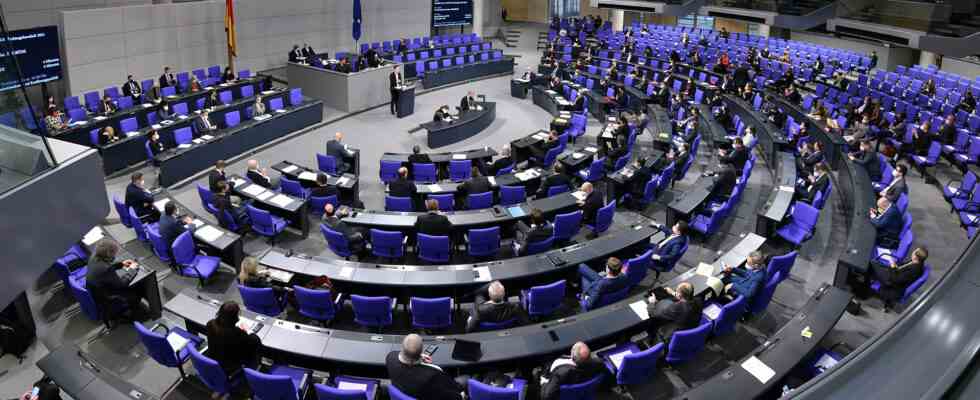comment
As of: 03/17/2023 6:57 p.m
There is no such thing as a one hundred percent fair right to vote. The opposition’s anger is understandable, but the electoral reform is sensible. It makes democracy a bit more stable.
The Bundestag has rarely experienced such a committed and at the same time bitter debate in recent years. No wonder, since it was about fundamental questions of democratic justice – and for at least two of the parties represented in the Bundestag even about their future parliamentary existence.
Today’s debate has shown once again that there is no such thing as a 100 percent fair electoral law, every change brings advantages and disadvantages and can be both sensible and unfair at the same time. This also applies to the electoral law that the traffic light coalition pushed through today against resistance from the opposition.
Allocation of seats reflects election result
The reform of the SPD, the Greens and the FDP definitely goes in the right direction: it guarantees a smaller parliament with a fixed number of MPs, ensures that the allocation of seats to the individual parties accurately reflects the overall result of a federal election and at the same time preserves the special status of the constituency candidates – even if they will have to overcome somewhat higher hurdles in future in order to win a mandate.
Only representatives of national minorities are now to be exempted from the five percent hurdle. That could sweep both the CSU and the left out of the Bundestag. Therefore, the rejection, even the anger, of the opposition parties is understandable.
Preference for proportional representation
The reform that was passed makes sense, however, because it balances a conflict of goals that the mothers and fathers of the Basic Law could not foresee: that the equal combination of majority voting (in constituencies) and proportional representation (via lists of candidates) with four to five roughly equally strong parties in the The system only works if you continue to inflate parliament with overhang and compensation mandates.
If that is not what is wanted – and most actors agree on this at least – one has to determine which electoral principle should take precedence. In the event of a conflict, the traffic light wants to give preference to proportional representation. That’s reasonable, because it makes future federal elections more transparent and predictable – an advantage that shouldn’t be underestimated in times of pronounced social conflicts and growing disenchantment with parties.
The disadvantages that arise from this, especially for medium-sized parties, are great. But they are acceptable if they help make our democracy a little more stable.
Editorial note
Comments always reflect the opinion of the respective author and not that of the editors.
Comment: Electoral reform is going in the right direction
Michael Weidemann, ARD Berlin, March 17, 2023 6:15 p.m

